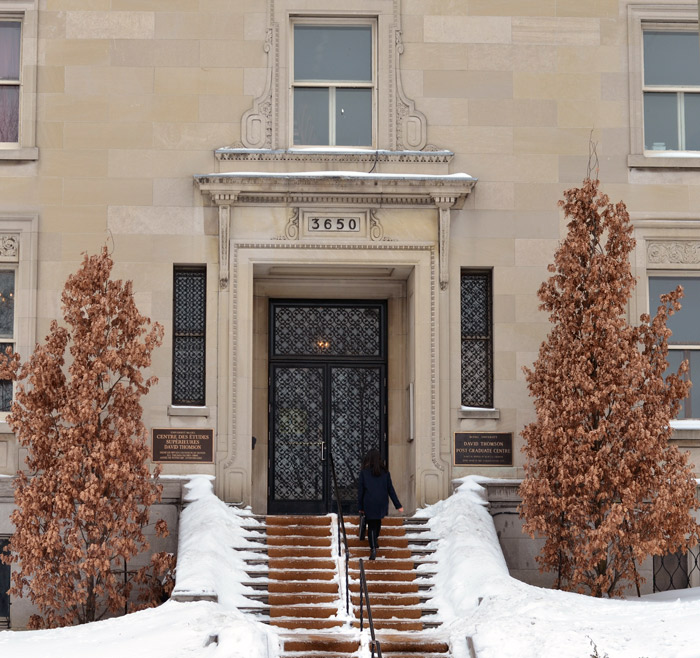The Post-Graduate Students’ Society of McGill University (PGSS) learned of a $40,000 surplus in general membership fees from the latest budget fact sheet presented at its Feb. 17 council meeting. Council also heard two presentations from representatives of new student federations: The Association for the Voice of Education in Quebec (AVEQ), and the Quebec Student Union (QSU).
Budget surplus
Due in part to the PGSS Special Projects Fund deficit, mainly from legal fees incurred after their disaffiliation from the Canadian Federation of Students (CFS) in 2009, PGSS as a whole runs a current deficit of over $600,000. In contrast, the most recent budget fact sheet made available to PGSS membership highlighted a $40,000 surplus in the society activities fund.
“The $40,000 that's projected for next year, that means money that we had budgeted for this year to spend, and we will not,” PGSS Member Services Officer Brighita Lungu said. “The $40,000 comes from these budget lines that I have picked that could have been much better spent.”
This surplus is from the pool of money coming directly from student fees, paid into by all PGSS members. Lungu expressed urgency to spend this money soon, despite PGSS running deficits in other areas of its budget.
"My personal opinion is that we've been hearing bankruptcy all year, and that does not encourage anybody to spend anything," Lungu said. "This is money we have to use, that we have to spend. We cannot end the year and not have your money spent, because this is your fee."
These funds do not alleviate deficits in other areas of the PGSS budget, which will be worked out in the coming semester.
“We have to make what we have in hand work for the next year,” Financial Affairs Officer Behrang Sharif explained. “Definitely, we are going to have discussions about how we are proposing the budget that next year we will not have this deficit increase more and more. It's currently $611,000, [and] by the end of the year we are hoping to be in the same place.”
AVEQ and QSU
Representatives from AVEQ and QSU gave presentations on the structure of their respective student federations, and how they differ from one another in terms of membership and voting. Sofia Guerrieri, an internal relations coordinator for AVEQ, explained how the federation’s financial and institutional structure will serve PGSS, by virtue of a separate commission, funded separately, for graduate studies students.
“In student organizing, especially at the provincial level, there's often an overrepresentation of undergraduate students,” Guerrieri said. “By giving graduate students a commission […] with its own budget, it’s recognizing that graduate students have different priorities, different rights, and [that] those need to be addressed at a different level [….] By having its own budget, the graduate studies body is granted relative autonomy within the association.”
QSU set itself apart from AVEQ in terms of its voting system. While AVEQ uses a one association, one vote method, QSU requires a motion to go through two different rounds of voting.
“For a motion to pass…it has to go through two votes,” explained Caroline Aubry, General Coordinator of QSU. “First […] a majority of associations has to be in favor of a motion for it to pass to the next level, and the next level is a semi-proportional system. This level aims to make sure we have at least 40 per cent of individual members that are in favor.”
PGSS Equity and Diversity Commissioner, Régine Debrosse, highlighted this difference as fundamental to PGSS’s decision on which federation to ultimately decide to affiliate with.
The way [AVEQ’s] voting system works is one association has one vote,” Debrosse said. “[This] means that the biggest student unions in Quebec— the biggest universities— will not go with them. If you have 60,000 members and you’re being told you’re going to have as much power as a student union that has 2,000 […] these people are not going to jump in that boat [….] It means that AVEQ is going to be small […] and QSU will be the bigger boat. PGSS's decision is the following: Are we jumping as big player in a small boat, or as a small player in a big boat?”







